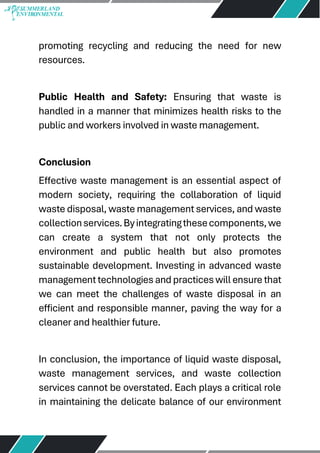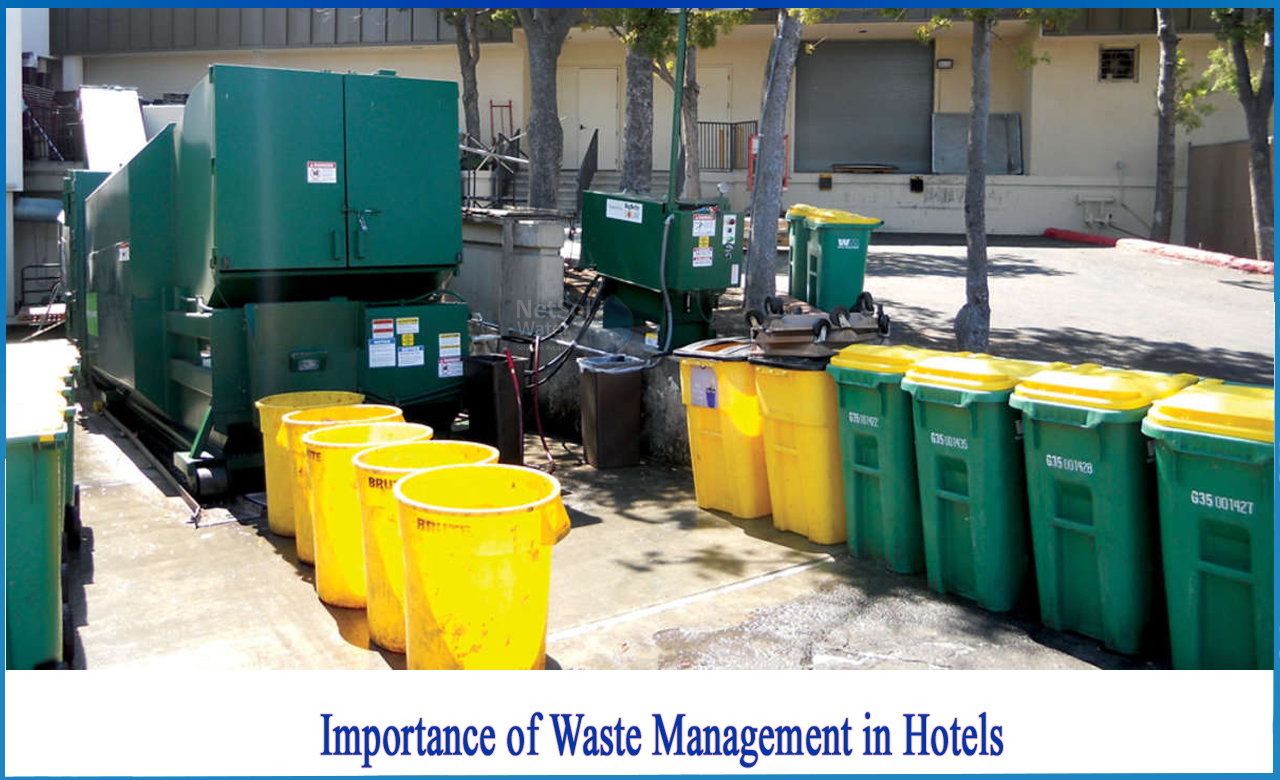Reclaim Waste Fundamentals Explained
Reclaim Waste Fundamentals Explained
Blog Article
8 Easy Facts About Reclaim Waste Explained
Table of Contents10 Easy Facts About Reclaim Waste DescribedReclaim Waste Can Be Fun For EveryoneThe Ultimate Guide To Reclaim WasteReclaim Waste Can Be Fun For Anyone4 Simple Techniques For Reclaim Waste
Check out the types, incidents, and forms of fluid waste. Residential sewer waste refers to the waste and items from a household septic system. This kind of waste is developed by humans in residences, institutions, and other buildings. This only includes septic containers that have a drainpipe field. The proper management and disposal of residential sewer waste call for fluid waste to be transferred to a sewer treatment plant where the correct methods and devices are put on cleanse and throw away waste.
Industrial waste commonly consists of potential risks, such as flammable products or a combination of liquid and strong waste products, and calls for an advanced and in-depth disposal process. The disposal of commercial waste commonly involves the purification of waste prior to transport to guarantee safe and correct disposal. Hazardous waste is produced from by-products and runoff of commercial processes and manufacturing.
This kind of waste can not make use of the same sewage monitoring transport or processes as septic or commercial fluids. The hazardous waste administration procedure requires the evaluation and screening of fluid waste prior to it goes through the disposal procedure (liquid waste removal). Runoff waste is the liquid waste that comes from overflow and excess stormwater in very inhabited areas or cities
Runoff waste can trigger contamination and flooding otherwise managed correctly. Discover more concerning sewer cleaning and waste management. Ensuring proper waste management can prevent calamities and minimize environmental damage. Both individuals in property setups and professionals in commercial or production sectors can take advantage of understanding the procedures and policies of fluid waste monitoring.
A Biased View of Reclaim Waste
Get in touch with PROS Services today to find out about our waste administration and disposal solutions and the proper means to care for the fluid waste you generate.
(https://penzu.com/p/1f225eb6893bd9aa)Do you know what happens to your water when you end, flush the toilet or drain pipes the washing machine? No? Well, it's worth knowing. This so-called 'wastewater' is not just a crucial resource however, after therapy, will be released to our land, waterways or the ocean. Made use of water from bathrooms, showers, baths, cooking area sinks, washings and commercial processes is called wastewater.

water used to cool down machinery or clean plant and equipment). Stormwater, a kind of wastewater, is overflow that streams from agricultural and urban areas such as roofings, parks, gardens, roads, paths and seamless gutters right into stormwater drains pipes, after rainfall. Stormwater moves neglected straight to regional creeks or rivers, eventually reaching the ocean.
The 6-Minute Rule for Reclaim Waste
In Queensland, the majority of wastewater is dealt with at sewage treatment plants. Wastewater is transported from domestic or industrial sites through a system of sewage systems and pump terminals, recognized as sewage reticulation, to a sewer therapy plant. City governments build, preserve and run most sewer treatment plants. Operators are licensed under the Environmental Management Act 1994 to release treated wastewater at an appropriate environmental standard into rivers.
The Department of Natural Resources recommends city governments regarding handling, operating and keeping sewerage systems and treatment plants. In unsewered locations, city governments may require householders to set up specific or house sewer therapy systems to deal with domestic wastewater from commodes, kitchens, shower rooms and laundries. The Department of Natural Resources authorises making use of home systems when they are shown to be reliable.
The majority of stormwater gets no therapy. In some brand-new subdivisions, therapy of some stormwater to get rid of litter, sand and gravel has started using gross pollutant catches. Wastewater therapy occurs in 4 stages: Gets rid of strong issue. Bigger solids, such as plastics and various other objects incorrectly discharged to sewers, are removed when wastewater is passed with screens.
Wastewater then flows right into large containers where solids clear up and official website are eliminated as sludge. Oil and scum are skimmed from the surface. Makes use of little living organisms called micro-organisms to break down and remove continuing to be liquified wastes and great fragments. Micro-organisms and wastes are integrated in the sludge. Eliminates nitrogen and phosphorus nutrients that could cause algal flowers in our rivers and endanger water life.
The Of Reclaim Waste
Nutrient removal is not available at all sewage therapy plants since it needs expensive specialist tools. Clear liquid effluent created after treatment might still contain disease-causing micro-organisms - liquid waste disposal melbourne.

Many wastewater flows right into the sewage system. Under the Act, local federal governments carry out authorizations and licences for ecologically appropriate activities (Ages) including wastewater releases that could have a regional effect.
Reclaim Waste Can Be Fun For Everyone
Tracking supplies valid information about water high quality and can validate that permit problems are being satisfied. The info acquired with tracking supplies the basis for making water high quality decisions.
Report this page